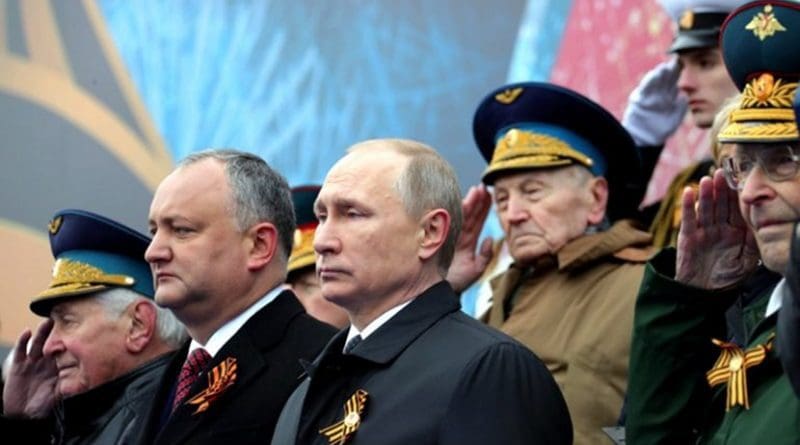Russia, The EU And The Upcoming Moldovan Elections – Analysis
The current geopolitical struggle which is unfolding between Russia and the West looks set to move to Moldova. Parliamentary elections are scheduled to be held in the republic, which borders Romania and Ukraine, on 24 February 2019.
The two largest parties running for election have very differing geopolitical outlooks. The incumbent Democratic Party of Moldova is nominally pro-European. The second largest party is the Socialist Party, led by the Moldovan President Igor Dodon. Despite claiming to be ‘pro-Moldovan’, the Socialists desire closer cooperation with the Russian Federation and seek integration with the Eurasian Economic Union, an organisation Moldova recently gained observer status in.
Likely due to his countries declining influence in the region, Vladimir Putin has taken a keen interest in the upcoming elections. Russia has gone so far as to offer amnesty to Moldovan migrants living in Russia who have over stayed their visas but wish to return to vote.
Whilst the European Union is immensely popular in Moldova, it has not offered its support to the current ruling party for the upcoming elections. On the contrary, in response to a number of worrying developments, concerning democratic freedoms and the lack of an independent judiciary, the European Union decided to halt funding to the country until after the upcoming elections are deemed free and fair by international observers.
Despite being interested in the elections, Russia may have recently damaged both its standing in the country and the reputation of pro-Russian parties. Recently it was announced that a consulate for Transnistria, a separatist region in Eastern Moldova, would open in Moscow. Such a move is bound to be met with hostility from certain portions of Moldova’s population.
Similarly, Moscow’s decision to restrict imports from Ukraine and other foreign goods coming through Ukraine is likely to damage the Socialists, as most Moldovan exports reach Russia via Ukraine.
Despite being somewhat shunned by both the Russian Federation and the European Union, both the Socialists and the Democratic Party advertise closer integration with each power as a way to lift the country out of extreme poverty.
As of now there is no clear-cut winner. The ruling party has been marred with scandals, including the annulment of the mayoral election in Chisinau, when opposition candidate Andrei Nastase won.
However, Dodon has also received negative press recently and has been stripped of his powers numerous times since becoming president. Furthermore, his overt pro-Russian tendencies and reported closeness to the Transnsitrian leadership has sparked outrage amongst certain portions of Moldovan civil society.
Regardless of the result, the upcoming elections will likely split the country and may fundamentally change its geopolitical outlook.

